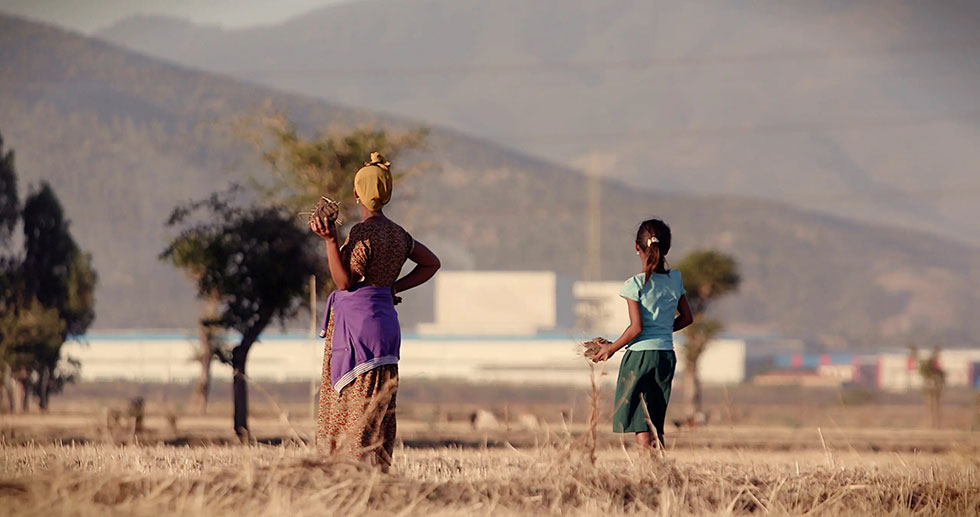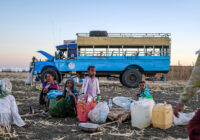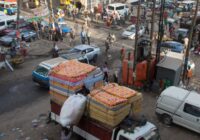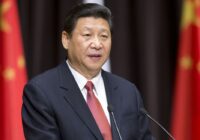This Sunday, Made in Ethiopia premiers at the DC/DOX documentary festival in Washington, DC. This film rejects simplistic narratives and explores Ethiopia’s burgeoning industrial sector and partnership with China through three individuals’ perspectives.
Ethiopia is the most populous nation in East Africa. In the 20th century, it faced economic troubles and civil war between communist and non-communist forces. Today, it is quickly developing, building infrastructure and factories. Much of the capital for this development comes from foreign partners, especially China, whose ambitious Belt and Road Initiative has focused on this core of the Horn of Africa. Ethiopia’s industrial sector now employs millions of people, and Ethiopians are growing more prosperous. Yet it is not rosy for everyone; indeed, any development this large and fast will have uneven effects on the human lives involved in it.
Three women, three lives
It is easy to misunderstand industrialization in Ethiopia and China’s growing involvement. Made in Ethiopia takes a look at these developments through the lives of three women: a factory worker, a local farmer and a Chinese factory director who is charged with filling no fewer than 30,000 jobs.
The documentary takes a close and long look at the period between 2019 and 2023. It raises profound questions about what is fair and for whom in Ethiopia’s growing factory towns. These characters struggle to defend their own wellbeing in a rapidly changing, chaotic world. The trade-offs materialize in the concrete struggles of people’s lives. Still, people fight and they persevere.
Watching the characters navigate tricky terrain inevitably makes you reflect on how challenging it is to build prosperity for all.
Making a film in a tumultuous time
I am an Emmy-nominated Ethiopian American anthropologist and filmmaker. I served as an executive producer of the documentary along with Anna Godas, Oli Harbottle, Susan Jakes and Roger Graef.
First-time directors Xinyan Yu and Max Duncan shot the film over the course of four years, through both the pandemic and a civil war. I was living in Ethiopia when this film was shot and remember when Max and Xinyan started this journey. Ethiopia was in a very different place than it is now. The directors captured a particularly dynamic few years and indeed the pandemonium of a country that is rapidly accelerating towards the future.
The filmmakers had unprecedented access to the Eastern Industrial Zone (EIZ) in Dukem, Ethiopia. Dukem is a farming town that is home to the largest and first Chinese industrial park in Ethiopia. Located 40 kilometers outside of Addis Ababa, the EIZ is considered the benchmark for the development of industrial parks in Ethiopia and was established to accelerate the process of industrialization and job creation financed by Chinese investors.
Made in Ethiopia screens today in Washington, DC, which is home to the largest population of Ethiopians outside of Ethiopia. There, the film finds its largest Ethiopian audience yet and hopefully an even larger audience of global development policymakers.
Breaking through conventional thinking
The film reminds me that the power of cinema lies in its ability to take an audience into your mind’s eye. The film calls on all who see it to consider what lies beyond the binaries of technocratic frameworks.
Recently, The New York Times published the headlines “Why It Seems Everything We Think We Knew About the Global Economy is No Longer True.” People are coming to understand the limits of conventional thinking in policy circles. We need new perspectives on growth, development and the global economy. Long-form storytelling enables us to delve deep into local communities’ experiences. Everyday people on the ground understand things that Washington- and London-based think tanks and international institutions easily ignore.
To be sure, this is not the first time we have realized that reality is complicated. Chimamanda Adichei warned us about the danger of a single story and Michel-Rolph Trouillot highlighted how perception can distort reality in his tour de force Silencing the Past. Yet we need many reminders because it is so easy to get stuck in lazy thinking, stereotypes, soundbites and echo chambers.
Made in Ethiopia invites audiences to practice perceiving the more complicated layers of China’s expansion into Ethiopia. The film aims to give the viewer a more rounded understanding of what is going on and what exactly might make for a better life for ordinary Ethiopians.
[Anton Schauble edited this piece.]
The views expressed in this article are the author’s own and do not necessarily reflect Fair Observer’s editorial policy.
Support Fair Observer
We rely on your support for our independence, diversity and quality.
For more than 10 years, Fair Observer has been free, fair and independent. No billionaire owns us, no advertisers control us. We are a reader-supported nonprofit. Unlike many other publications, we keep our content free for readers regardless of where they live or whether they can afford to pay. We have no paywalls and no ads.
In the post-truth era of fake news, echo chambers and filter bubbles, we publish a plurality of perspectives from around the world. Anyone can publish with us, but everyone goes through a rigorous editorial process. So, you get fact-checked, well-reasoned content instead of noise.
We publish 2,500+ voices from 90+ countries. We also conduct education and training programs
on subjects ranging from digital media and journalism to writing and critical thinking. This
doesn’t come cheap. Servers, editors, trainers and web developers cost
money.
Please consider supporting us on a regular basis as a recurring donor or a
sustaining member.
Will you support FO’s journalism?
We rely on your support for our independence, diversity and quality.










Comment